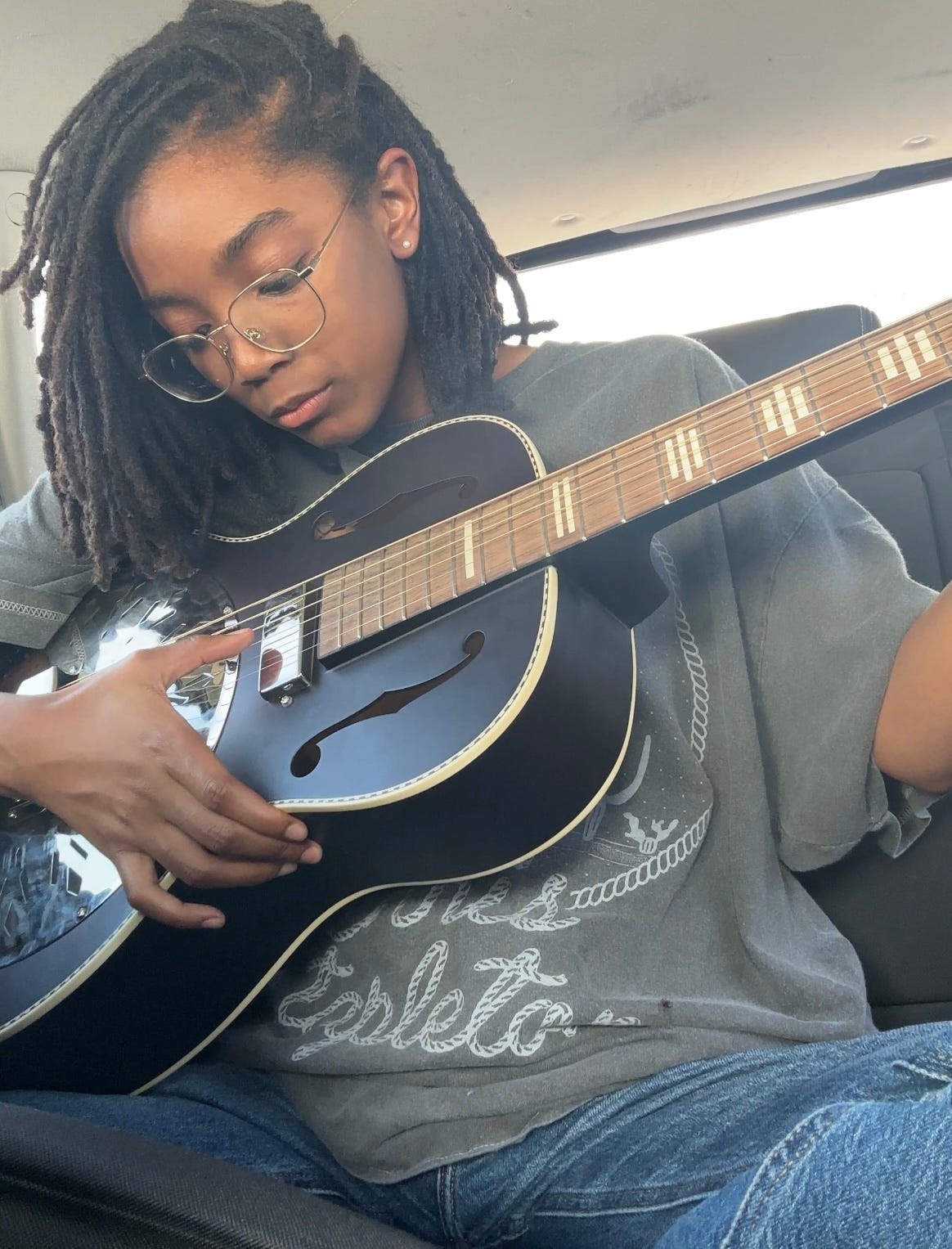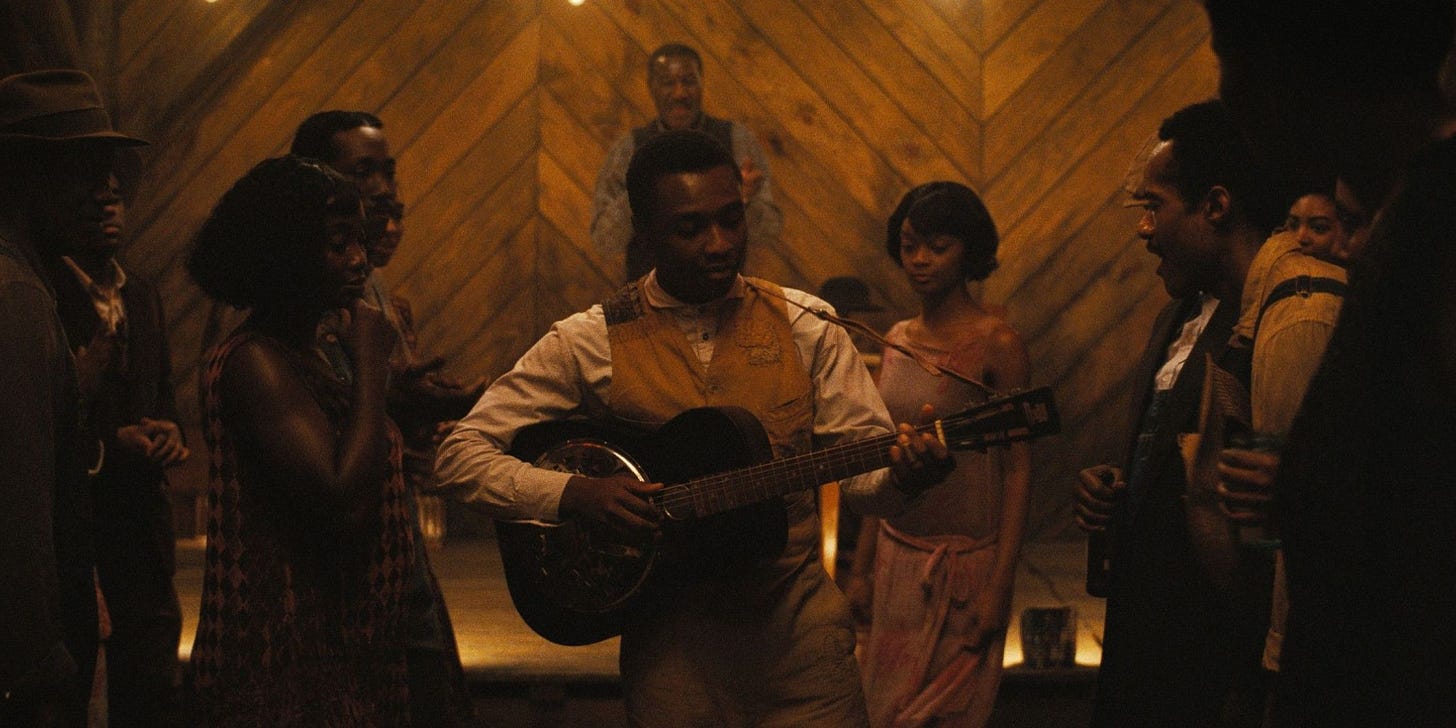A few days after watching Sinners, I bought a guitar. A black Bluegrass Resonater. A beauty, if I do say so myself.
A sleek black body that — in certain lighting — had an ombre of dark brown; the lower center of the body had a metal circle known as the cone that had a pattern of rhombuses and rectangles carved out of it, a light brown neck, the nut being black and detailed with white tuning pegs.
“Sammy” was the name I gave it.
I walked into the theatre on a rainy Friday. The sky was gray and there was an eerie sound of wind howling every now and then. My sister and I were the only ones in the theatre. A plethora of snacks sat on my lap: a Snicker’s ice cream bar, a box of mediocre cookies n’ cream Pocky, a small somewhat-stale popcorn, and a cup of iced water. By the time advertisements were done playing all that was left was the popcorn. But that’s beside the point.
The movie was phenomenal. Life changing.
Beyond the moral of the story (“cultural vampirism”1) and the spirituality, history, and horror, the most important part of the story, the heart of it, was the magic for storytelling. Of storytellers.
Sinners is a movie about a pair of twin brothers, Stack and Smoke, who are bringing their cousin Sammy to the grand opening of their juke joint to play his guitar. His guitar being a black Bluegrass Resonator… See what I did there?
Anyway. The story is about the two brothers. It follows them buying the joint, picking Sammy up, and during the night when Sammy and a fellow musician Delta Slim play a song together. Sammy is a music man. Music is a form of storytelling.
Stories are magical. Attractive.
There are legends of people born with a gift of making music so true it can pierce the veil between life and death, conjuring spirits from the past and the future. — SINNERS opening lines
Stories are magical because they come from the soul and reveal so much truth. They connect people. They’re ancestral.
Songs specifically carry a rhythm, interact with the brain differently, and at times can feel like incantations or spells. “A system of healing,” director Ryan Coogler calls music in conversation with Hanna Flint.
Which is why an evil eye — or ear — would want to steal someone’s songs. Someone’s stories.
Not because they want the songs and stories. But because they want the soul. The healing.
They want the connection to their own soul and ancestors.2
We all crave that connection. The danger lies in the fact that some of people don’t have the type of people within their lineage they want to connect to.
The craving is still there.
We were born within the same diversity as nature. We all have things that run in our family. Some things that need to run into and stop with us. We have different communities that need to be cherished and further developed.
We have our ancestors but we will one day be ancestors.
All of us have ancient chords within us that must be plucked to create the music of our lives, the songs for future generations to sing.
The term “cultural vampirism” was the term used by one of the Extras / Background Dancers, Condoleezza Semien, I interviewed about the development of the theme within Sinners
In the movie, when Remmick turns enough people, and joins their soul with his, he doesn’t sing the songs he claimed he wanted, he sings his ancestral song.




